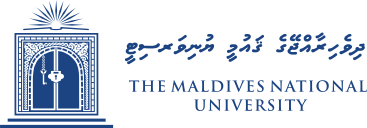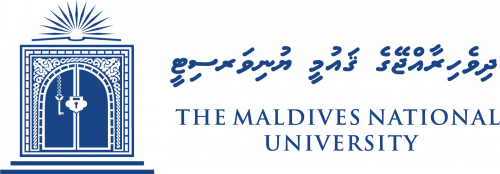Introduction
The link between big data technology, maritime security and surveillance, and academic research platforms lies in leveraging the use of evidence-based analytics to navigate maritime security in maritime states. The Maldives is a small state, covering a large exclusive economic zone to ensure the security and safety of sea and land users. With growing challenges at sea, from drug trafficking activities to piracy and illegal fishing arising in foreign waters and lands, the Maldives has been advancing technologically savvy systems and collaborative efforts to drive maritime surveillance. Connecting situational information and operational capability using data analytics platforms, to link communications, understandings, and solutions on the ground, is key to these systems.
Considering security as a national priority, universities will be well-suited to managing data due to their inherent focus on research, analysis, and knowledge dissemination. The Maldives National University (MNU) is well-placed to initiate research projects and categorically bridge the gap between data analysis and maritime security surveillance by leveraging its expertise to gauge and use data science related to security priorities.
Maritime security, surveillance and data
Big data analytics can be used to analyse vast amounts of data from various sources (e.g., vessel tracking, sensor data, satellite imagery) to identify potential threats, predict maritime traffic patterns, and improve situational awareness. For example, the Information Fusion Centre for the Indian Ocean Region (IFC-IOR), in India, plays a vital role in sharing data to support regional maritime domain awareness (MDA). For example, in 2024, the tabletop exercise (TTX) run by the United Nations Office on Drugs and Crime (UNODC), in collaboration with IFC-IOR, used multiple datasets on legal processes to enhance MDA efforts and responses to maritime crimes.
While such regional platforms provide a comprehensive data system to help individual states address their issues, national systems remain pivotal in generating information to explain the situation on the ground.
For example, in the Maldives, the launch of the construction of the Maritime Rescue Coordination Centre (MRCC) marked the advancing role of data analytics in the security and defence domain. MRCC can operate at the national and regional levels in the realm of knowledge development and sharing for maritime surveillance operations. For example, institutional and resource limitations can diminish capacity. However, the efficient transfer of data – i.e., a construction of shared communication, by expertise, on responses or resolutions – can categorically impact operational capacities in security institutions.
The functional capacity of MRCC can benefit from an embedded knowledge system fostered by the academic platform – for example, universities are known for transparency and ethical groundings of knowledge, and hence, promote an evidence-based data system for institutional collaboration.
Academic Institutions’ Role and MNU
Academic institutions can offer specialised programs in fields like data science and technology. In collaboration with researchers, the Maldives National University (MNU) can pioneer studies on the application of big data in addressing maritime challenges. By leveraging large datasets, they can analyse oceanic conditions, shipping routes, and marine biodiversity patterns. For example, with the multi-disciplinary approach to maritime studies, the MNU’s College of Fisheries and Ocean Sciences fosters a platform for data discovery, analysis and collaboration between national and international bodies, creating an information system to protect marine resources. This platform can bring together multiple datasets to address maritime challenges to national security.
Across the Indo-Pacific, the Australian National University (ANU) leads academic engagements supporting the Australian Defence in developing maritime data for Pacific Island countries. For example, the ANU’s National Security College (NSC), through initiatives like MDA 3.0, focuses on understanding the complexity of information and intelligence-sharing in the Indian Ocean – i.e., connecting the Indian Ocean and the Pacific. This includes improving intelligence gathering, analysis, and sharing, which is crucial to improve MDA and security operations in the Pacific, including supporting the Australian Government’s collaborative efforts, through ANU-supported Pacific Security College and the Pacific Fusion Centre, a regional data body under the Pacific Islands Forum Secretariat.
With its multidisciplinary framework, the MNU can expand the scope of big data analytics in maritime security operations by incorporating the activities of different faculties and their areas of study related to security issues. For example, like fisheries issues, managing shipping data, exploring engineering and innovative technologies by the Internet of Things (IoT), and navigating national interests at the regional level can together simplify a complex environment of many issues relevant to the maritime security domain.
While big data can help understand the environmental impacts of shipping routes on marine ecosystems, this multidisciplinary academic platform can analyse, collate and disseminate the data on those impacts, to project policy-informed security discourses. This information can be used to develop sustainable practices in the maritime security domain.
International Collaboration and Security through Technology
Big data technology can facilitate the Maldives navigate its national priorities in regional and international frameworks, including the United Nations (UN) and the Indian Ocean bodies, on security issues. For example, the MNU’s 2025 Conference on Climate Resilient Agriculture for Food Security brings together national and international experiences to address the interconnections between food security, climate change and development in the Maldives.
In the maritime domain, by sharing data and insights across borders, India, Sri Lanka, and the Maldives run military-based security and surveillance operations. The idea of security extends beyond the military domain in the Maldives, and incorporating issues like climate-based disasters into security policy would require extending data also beyond the national systems. For example, maritime security governance is a resource-draining activity for the Maldives and working together to address mutual challenges and enhance regional security is crucial. The IFC-IOR is a prime example of how regional cooperation can be strengthened through data sharing for joint operations.
With enhanced technological capabilities, MNU can collaborate with national security sector agencies to bring field experts from different countries. This collaboration will complement the Government’s national initiatives, such as the ‘Maldives 2.0’ initiative, which aims to innovate public services by digitising operations, developing innovative solutions, and sharing best practices.
Conclusion
The field of big data offers a powerful tool for enhancing maritime security and surveillance, and an academic platform like MNU can play a vital role in equipping the next generation of professionals with the knowledge and skills to effectively leverage this technology. By integrating big data into education, research, and international collaboration, the Maldives can expand its knowledge of maritime security capabilities and contribute to regional and global security discourses.
Authors
Dr Ali Fawaz Shareef is the Deputy Vice-Chancellor (Academic Affairs) at the Maldives National University. He holds a PhD in Information Systems from Massey University, New Zealand, and has held prominent positions, including Vice Chancellor of MNU and Rector of Cyryx College. Fawaz specialises in eLearning, data science, and research and has made significant contributions to national education reforms and eLearning in the Maldives.
Athaulla A Rasheed is the Head of Centre at the Centre for Security and Strategic Studies at The Maldives National University. A former foreign service officer and diplomat at the Ministry of Foreign Affairs, Maldives, Athaulla also holds two PhDs in international and strategic studies, and political science from ANU and the University of Queensland, Australia.

